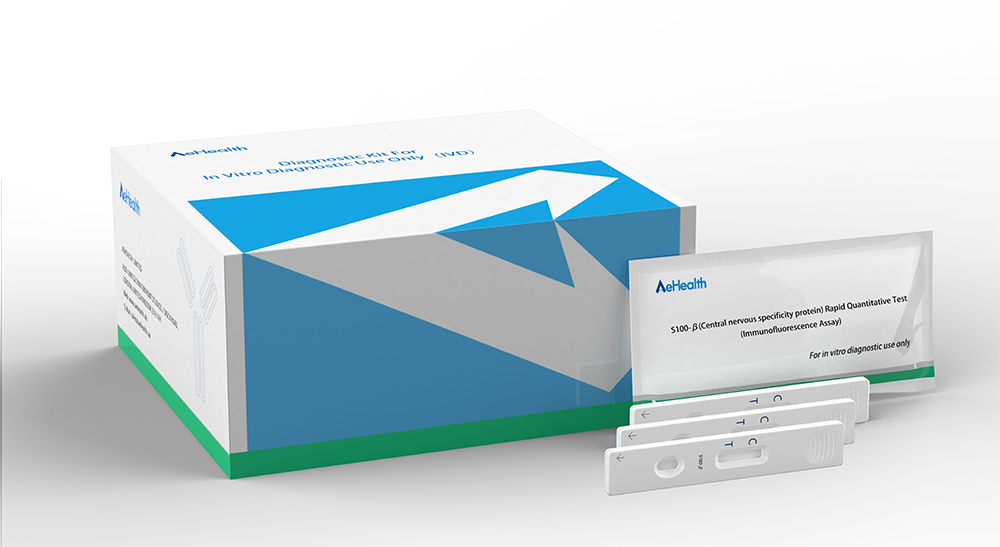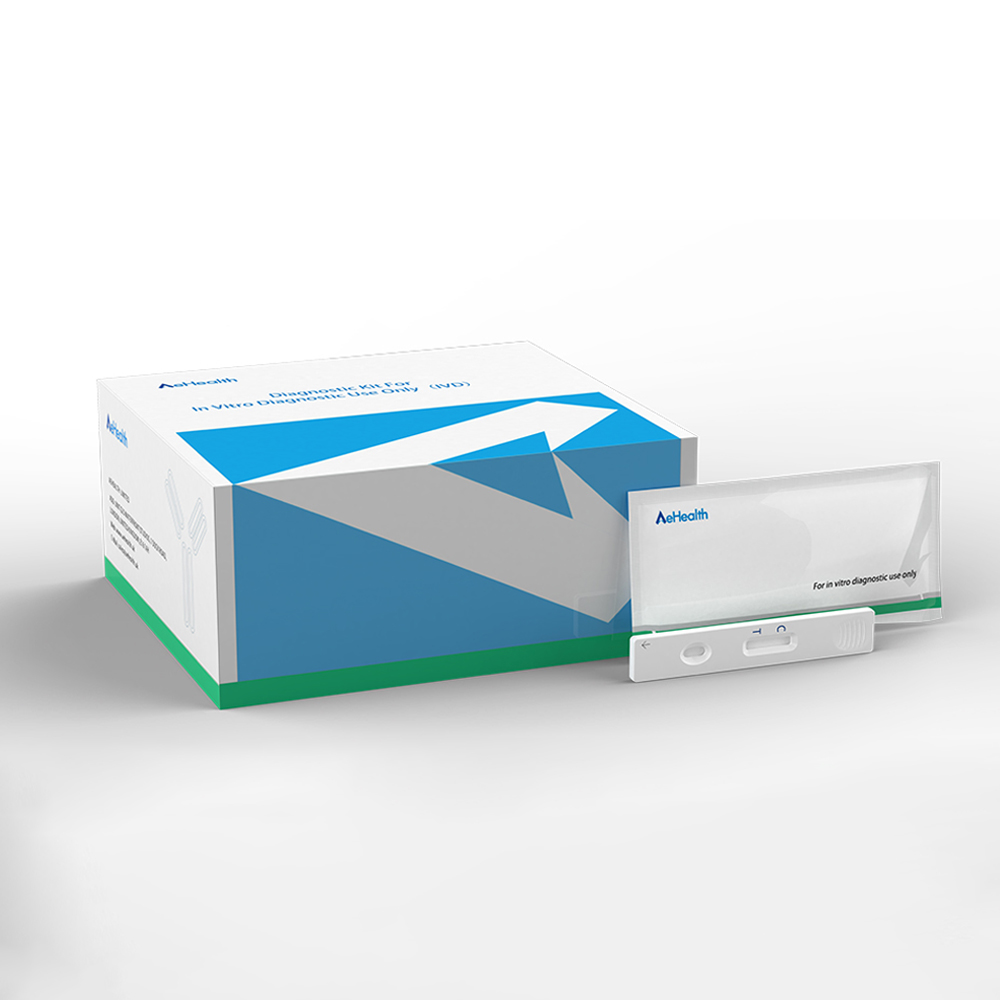
CEA
Detection Limit: ≤ 1.0 ng/mL;
Linear Range: 1-500 ng/mL;
Linear correlation coefficient R ≥ 0.990;
Precision: within batch C.V. is ≤ 15%; between batches C.V. is ≤ 20%;
Accuracy: the relative deviation of the measurement results shall not exceed ± 15% when the accuracy calibrator prepared by CEA national standard or standardized accuracy calibrator are tested.
1. Store the detector buffer at 2~30℃. The buffer is stable up to 18 months.
2. Store Aehealth Ferritin Rapid Quantitative test cassette at 2~30℃, shelf life is up to 18 months.
3. Test cassette should be used within 1 hour after opening the pack.
CEA (Carcinoembryonic Antigen), a cell-surface 200 KD glycoprotein, is normally produced during the development of a fetus but disappears or becomes very low in the blood of healthy adults because the synthesis of this protein ceases before birth. However, increased levels may be present in colorectum, gastric area, breast, ovary, liver, lung, pancreas, biliary and medullary thyroid carcinoma, as well as in some benign conditions like smoking, inflammatory bowel disease, chronic gastritis, peptic ulcer, cirrhosis, hepatitis and pancreatitis. CEA is often used to monitor patients with cancers, especially colorectal carcinoma, after surgery to measure the response to therapy and whether the disease is recurring. When the CEA level is abnormally high before surgery or other treatments, it is expected to fall back to normal after following successful surgery to remove carcinoma. A rising CEA level indicates progression or recurrence of the cancer.

